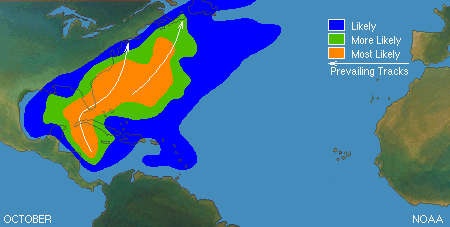GraniteStater
Veteran Member
How much of a concern are hurricanes to east coast boaters? We live in the mountains of NH so they aren't currently on our radar.
As we think about our plans though we will likely be cruising from New England to the Bahamas from late sept to November. Should a hurricane hit, we won't have a home marina to run for to secure our boat.
My attitude is "that's why we have insurance." We will do what we can while prioritizing life safety. Possessions can be replaced. It seems like one always has a least a few days notice of hurricanes so its easy to get the people (but maybe not the boat) out of harms way.
My wife doesn't so much agree with that sentiment. This is something that is very concerning to her.
Mind you she prefers the idea of not taking a boat north each year. She'd rather see it left somewhere in Georgia or Florida. This also works into her "6 months a year in a house - 6 months a year on a boat" strategy. Personally I'd rather be permanently on a boat but I've already agree to keep a dirt house.
Thoughts?
As we think about our plans though we will likely be cruising from New England to the Bahamas from late sept to November. Should a hurricane hit, we won't have a home marina to run for to secure our boat.
My attitude is "that's why we have insurance." We will do what we can while prioritizing life safety. Possessions can be replaced. It seems like one always has a least a few days notice of hurricanes so its easy to get the people (but maybe not the boat) out of harms way.
My wife doesn't so much agree with that sentiment. This is something that is very concerning to her.
Mind you she prefers the idea of not taking a boat north each year. She'd rather see it left somewhere in Georgia or Florida. This also works into her "6 months a year in a house - 6 months a year on a boat" strategy. Personally I'd rather be permanently on a boat but I've already agree to keep a dirt house.
Thoughts?



